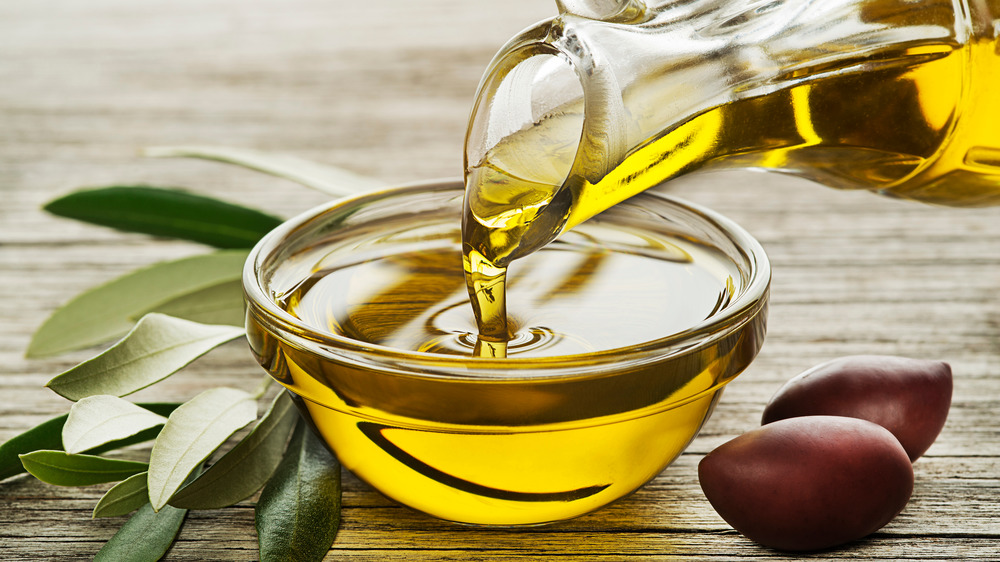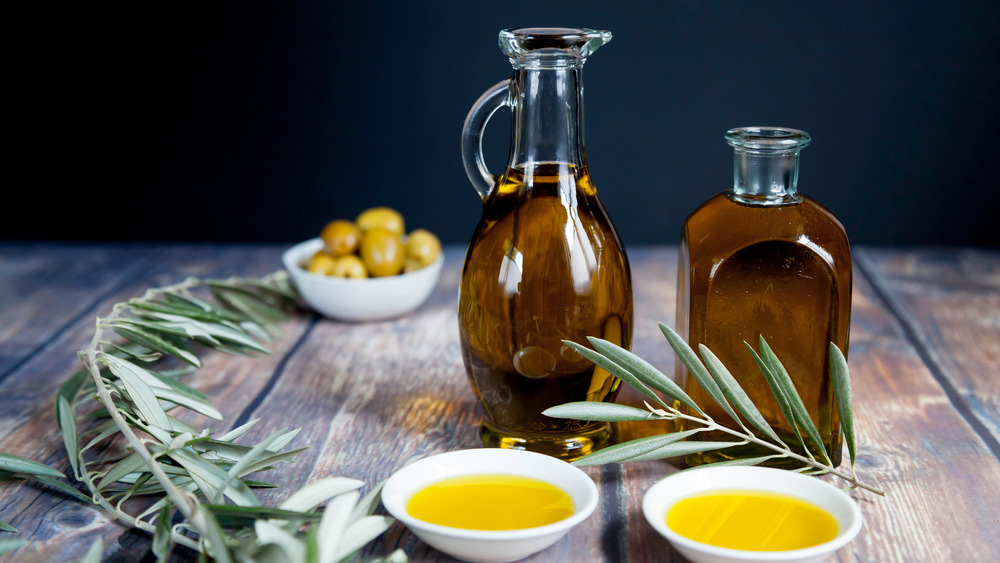The Olive Oil At Italian Restaurants Isn't What You Think
When you're at an Italian restaurant in the United States, you might assume it's using the highest-quality ingredients for everything on the menu. But Italian ingredients, including extra virgin olive oil, often have to follow extremely specific guidelines to be considered authentic.
While you're probably used to seeing bottles labeled "extra virgin" all over the supermarket, not all olive oil in the United States meets this standard. Extra virgin olive oil is made with pure, cold-pressed olives and has to go through an extensive certification process to be considered true EVOO.
Oil without the "extra virgin" label, conversely, can be made with a blend of cold-pressed olives and processed oil and doesn't have to be certified. That means it can be manufactured and sold more quickly (and it often ends up being one of the more affordable olive oils on the market, too). And the problem affects both grocery store olive oil and that used at U.S. restaurants.
The olive oil at American restaurants might not be EVOO
Not every Italian restaurant in the United States serves top-notch extra virgin olive oil. And even if you see the "extra virgin" label at the grocery store, it might not be accurate.
According to Forbes, some oils can be mislabeled as EVOO. Even if restaurants buy a well-known brand or one with a "Protected Designation of Origin" stamp (which notes where the oil was produced and can help guarantee the quality), it can still be fake. Bottles with a PDO stamp are subjected to stricter regulations, but fakes can still slip through the process and end up on shelves or in restaurants.
Because it's difficult to guarantee your oil is actually extra virgin, you might not find the most sought-after olive oils at Italian restaurants in the United States, unless they buy the oil directly from a producer or distributor.

